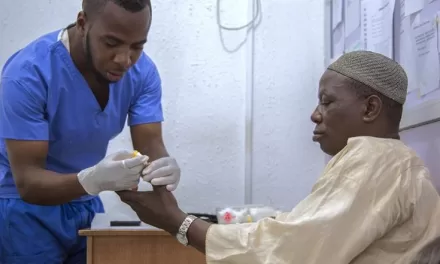Bone pain, joint pain, and swelling are common symptoms experienced by those diagnosed with osteosarcoma, a rare type of cancer that originates in the bones. Approximately 1,000 people in the United States each year begin to feel these symptoms before being diagnosed with osteosarcoma, with about half of cases affecting children and adolescents. Now, groundbreaking interdisciplinary research is shedding light on how this cancer might spread—offering a potential path for earlier predictions of metastasis.
Led by Dr. Irtisha Singh, assistant professor at Texas A&M University College of Medicine, and Dr. Jason T. Yustein, professor at the Winship Cancer Institute and Aflac Cancer and Blood Disorders Center at Emory University, the research team has made strides in understanding the molecular underpinnings of osteosarcoma. Their findings, published in Molecular Cancer Research, examine the unique role of gene expression and epigenetic changes in the development and spread of cancer.
Dr. Singh explains that the human body’s cells exhibit distinct functions based on their location, though they share the same DNA. “The cells in your blood versus the cells in your skin have very different functions,” Singh said. “This difference is driven by the way genes are expressed in these cells.”
Singh and Yustein’s collaborative research seeks to answer why some osteosarcoma cells metastasize while others remain confined to the primary tumor. They believe that changes in epigenetic states—chemical modifications that affect gene expression—play a pivotal role in determining whether cancer cells spread. Early evidence indicates that specific epigenetic signatures and gene expression profiles could signal the likelihood of metastasis, even before traditional diagnostic methods can detect it.
The research team’s journey began with Dr. Yustein’s clinical observations of osteosarcoma patients. Some patients showed metastasis at diagnosis, which led the team to suspect that the epigenetic landscape of tumors in these patients was fundamentally different from those whose cancer did not spread. To explore this further, they examined biopsies from these patients, created patient-derived xenografts, and conducted epigenetic and gene expression profiling.
The results were illuminating. The researchers found that the epigenetic state of the tumor cells plays a key role in activating genes that promote metastasis. In essence, the way the DNA is packaged within the cell—whether tightly wrapped around proteins called histones or more loosely arranged—determines whether genes remain inactive or are activated. Chemical modifications to histones can loosen the DNA, allowing the cell to “turn on” genes that drive metastasis.
This discovery suggests that osteosarcoma tumors have distinct characteristics from the outset, with some tumors more prone to metastasis due to their epigenetic state. Dr. Singh sees this as a pivotal finding: “At the fundamental level, the primary osteosarcoma tumors are very different, so maybe even ahead of time, you can tell which patients will undergo metastasis versus those who won’t.”
Osteosarcoma remains a difficult cancer to treat, with survival rates showing little improvement in the past 20–30 years, particularly for patients whose cancer has already spread. This research offers new hope for earlier identification of those at risk of metastatic disease, paving the way for targeted interventions and more effective treatments.
Looking ahead, the team plans to extend their work to other sarcomas, such as rhabdomyosarcoma, which shares similarities with osteosarcoma. Their research could ultimately lead to advances in early diagnosis and treatment strategies, improving outcomes for patients with metastatic cancers.
For more information, refer to: Irtisha Singh et al, Intrinsic Epigenetic State of Primary Osteosarcoma Drives Metastasis, Molecular Cancer Research (2024). DOI: 10.1158/1541-7786.MCR-23-0055












